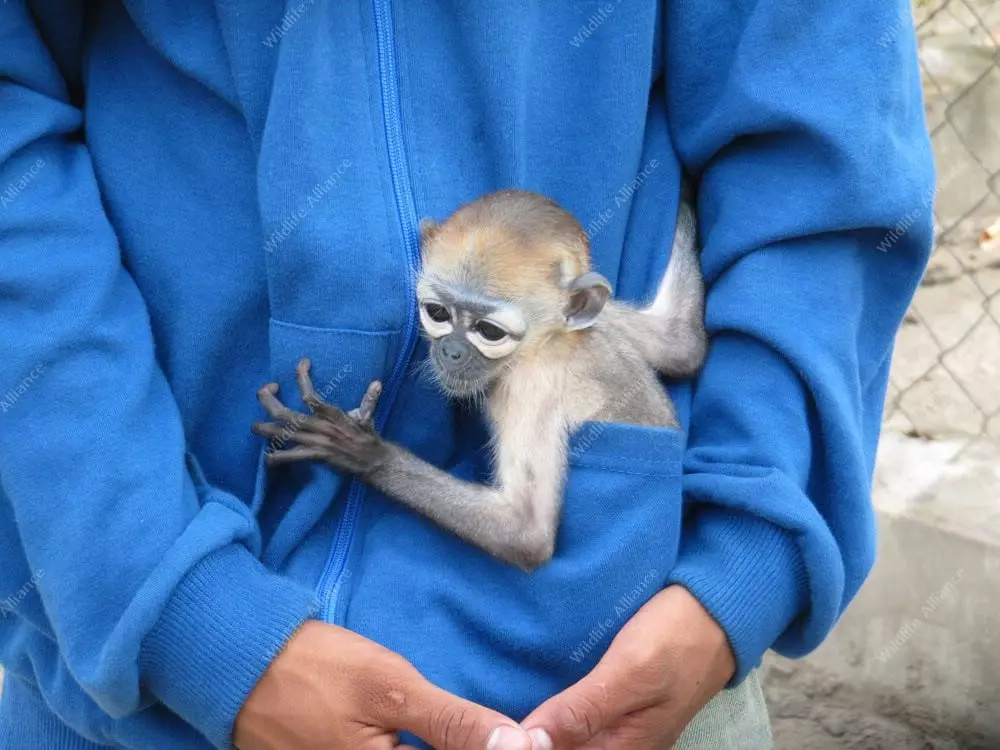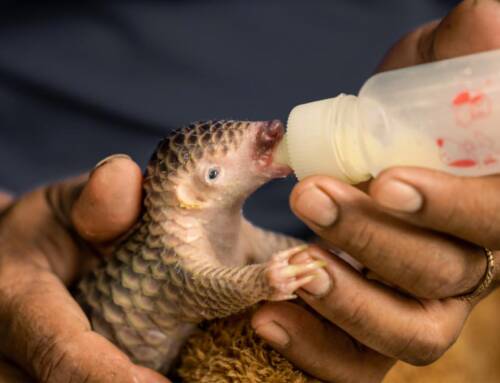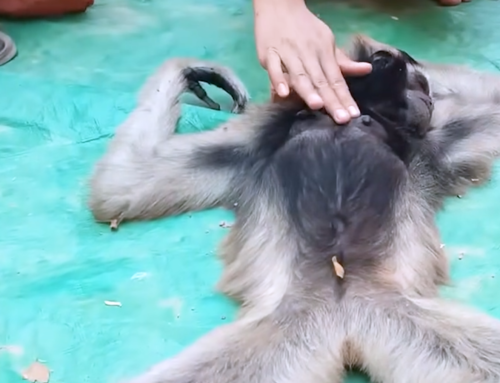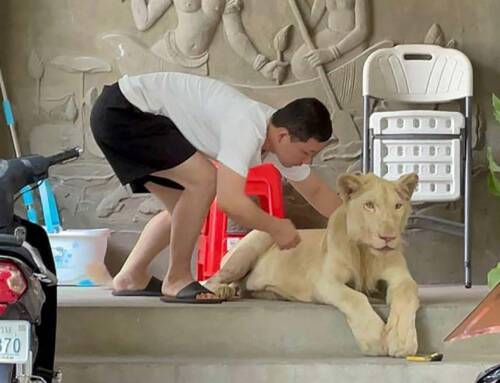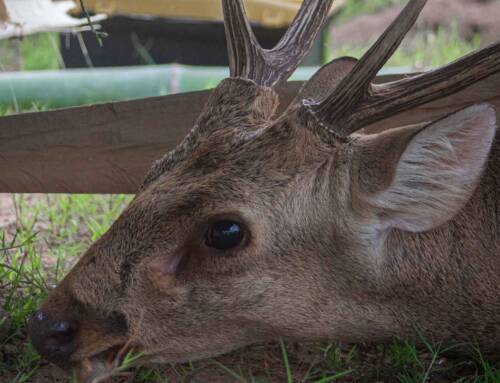The three species of douc langurs are some of the most beautiful primates in the world, but unfortunately are all under serious threat of extinction. Douc langurs are geographically restricted by the Mekong River to the west and are only found in Laos, Vietnam, and Cambodia. Once widespread and common throughout their range, populations of all three douc langur species have been severely reduced and fragmented due to human pressure.
Black-shanked doucs are native to northeast Cambodia and southern Vietnam and unlike their red-shanked counterparts, are able to survive in small, fragmented forests. However, they have still suffered over 50% population loss over the last three generations due to increasing pressures from humans and are classified as Endangered. Habitat loss is of particular threat to douc langurs because they have relatively small ranges and population densities. As humans encroach farther and farther into douc langur habitat it becomes increasingly more fragmented and the animals are no longer able to maintain healthy levels of genetic diversity. Habitat fragmentation allows hunters easier access to dense forests and douc langur habitat. This poses a serious threat to the species because hunting (for meat, traditional medicine, and the illegal pet trade) is the biggest threat to the species’ survival.
Douc langurs are particularly susceptible to hunting because when threatened, they let out loud alarm calls and instead of fleeing, climb up into the canopy and hide their faces behind leaves or branches. Because of this behavior of staying stationary, some hunters have called them the easiest species to hunt. When adult douc langurs are hunted for food and traditional medicine, their babies are often captured and sold as illegal pets. However, douc langurs have a very specialized diet of leaves and some seeds, fruits and flowers, so they often die in captivity due to gastric distress. Their highly specialized nutrition and habitat requirements make them extremely habitat dependent. In order to prevent douc langurs from becoming extinct, it is crucial to find a way to protect their habitats from destruction and to stop the hunting of these endangered animals.
In Cambodia 9 out of the 10 primate species are listed as either Endangered or Threatened. Since 2001, the Wildlife Rapid Rescue Team (WRRT) has been working arduously to rescue primates and halt the illegal wildlife and pet trade. They have rescued over 2,600 gibbons, langurs, macaques and lorises. Last year alone, the team rescued 90 live primates, including a black-shanked douc langur. Unfortunately, they also seized 14 dead douc langurs and 6 dried douc langur stomachs from wildlife traders.
As the last line of defense, the WRRT’s presence in Cambodia is critical to the survival of this threatened species by combating the trade and reducing the demand for douc langurs. It costs the team approximately $500 to conduct a rescue operation. This consists of gathering information from various intelligence networks, conducting the undercover investigation, saving the animals, and providing care to rescued wildlife during transit to a release site or to Phnom Tamao Wildlife Rescue Center. Help them continue to protect, conserve, and save douc langurs and other primates in Cambodia by making a gift to ‘End Wildlife Trafficking’ on our donation page!

